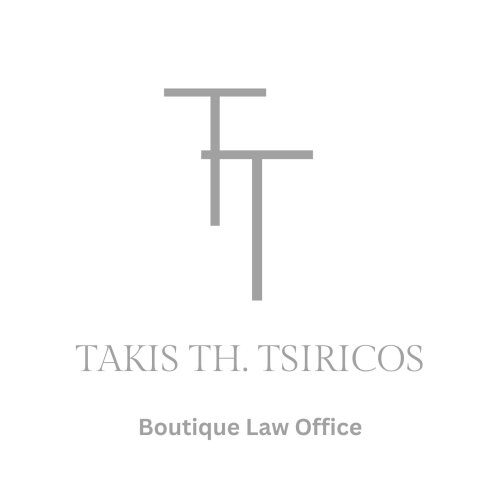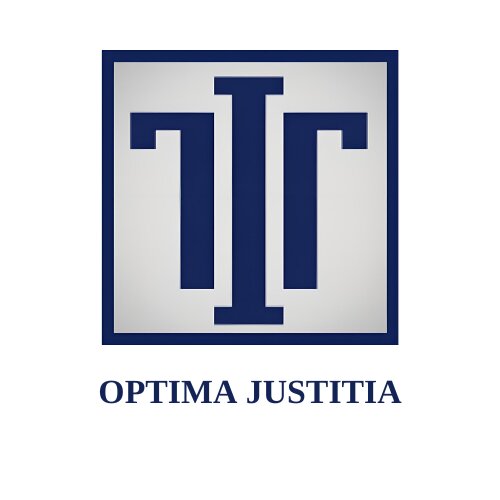Best Data Center & Digital Infrastructure Lawyers in Greece
Share your needs with us, get contacted by law firms.
Free. Takes 2 min.
Or refine your search by selecting a city:
List of the best lawyers in Greece
About Data Center & Digital Infrastructure Law in Greece
Greece is emerging as a strategic hub for data centers and digital infrastructure due to its geographic location between Europe, Asia, and Africa. The sector covers a wide range of technologies and facilities including data centers, cloud networking, telecommunications infrastructure, fiber-optic networks, and IoT platforms. As businesses, public entities, and individuals rely more on secure digital services, the Greek government has prioritized developing robust data protection measures and digital infrastructure standards. Greek law governs the construction, operation, security, and data processing within these facilities, integrating both domestic legislation and relevant European Union regulations.
Why You May Need a Lawyer
Legal assistance is often essential when dealing with data center and digital infrastructure matters in Greece. You may need a lawyer in several situations, such as:
- Drafting and negotiating contracts for data center construction, leasing, or operation
- Ensuring compliance with Greek and EU data protection and cybersecurity laws
- Managing cross-border data transfer issues
- Resolving disputes between service providers and customers
- Obtaining permits and licenses necessary for building and operating infrastructures
- Addressing intellectual property, confidentiality, and liability matters
- Handling mergers, acquisitions, or investments in data centers
- Ensuring proper employment and labor law compliance within infrastructure operations
A lawyer experienced in this specialized field can provide guidance, mitigate risks, and safeguard your interests whether you are a business, municipality, investor, or service provider.
Local Laws Overview
The legal framework for data centers and digital infrastructure in Greece is shaped by a combination of national laws and EU directives. Key elements include:
- Data Protection: Greece adheres to the General Data Protection Regulation (GDPR) which governs the processing and movement of personal data. The Hellenic Data Protection Authority (HDPA) monitors compliance at the national level.
- Cybersecurity: The National Cyber Security Authority enforces laws derived from the EU Directive on Security of Network and Information Systems (NIS Directive). Operators of essential services, including data centers, must comply with stringent cybersecurity requirements.
- Permitting and Zoning: Construction and operation of data centers require compliance with Greek zoning, environmental, and urban planning legislation. Licenses and permits from various governmental bodies are necessary.
- Telecommunications Regulation: The Hellenic Telecommunications and Post Commission (EETT) oversees rules surrounding telecommunications infrastructure and services, including fiber network deployment.
- Tax Incentives: Greece offers incentives for the development of digital infrastructure, which may include tax benefits and funding opportunities for eligible investments.
- Energy Regulations: Data centers are significant energy consumers, and relevant laws address energy efficiency, renewable integration, and carbon footprint management.
Understanding these regulations is crucial for anyone looking to invest, operate, or use digital infrastructure services in Greece.
Frequently Asked Questions
What permits are required to build a data center in Greece?
You must obtain planning and building permits from regional or local authorities, environmental approvals, and specific utility or telecommunications licenses as needed. Legal review helps ensure you meet all requirements.
How does Greece regulate the processing of personal data in data centers?
Greece applies the GDPR, requiring data controllers and processors to have robust data protection measures, obtain data subject consent, and perform data protection impact assessments where appropriate.
Are there restrictions on transferring data internationally from Greek data centers?
Yes. GDPR provisions require adequate safeguards for personal data transfers outside the EU/EEA, such as Standard Contractual Clauses or adequacy decisions.
What cybersecurity standards must data center operators follow?
Operators must comply with the NIS Directive and any additional rules issued by the National Cyber Security Authority. This includes risk management, incident reporting, and implementing appropriate security measures.
Is there government support or incentives for digital infrastructure projects?
Yes, the Greek government offers incentives such as tax relief, grants, and financing programs for qualifying digital infrastructure investments.
Can individuals or companies rent space or services in Greek data centers?
Absolutely. Co-location, managed hosting, and cloud services are available, but contracts must address data protection, service level agreements, and liability issues.
Which authority ensures compliance with telecommunications infrastructure laws?
The Hellenic Telecommunications and Post Commission (EETT) regulates and oversees telecommunications networks, including digital infrastructure connectivity.
How are disputes resolved in the data center sector?
Disputes are usually resolved through negotiation, mediation, or arbitration, but can also be brought before Greek courts depending on the contract terms and legal issues involved.
What happens if my data center has a security breach?
Operators must notify the National Cyber Security Authority, affected parties, and sometimes the HDPA within specific time frames. Failure to comply may result in heavy fines and operational consequences.
What employment laws must be followed in operating data centers?
Greek labor laws govern employment contracts, health and safety, work hours, and employee rights. Specialized legal advice helps ensure full compliance and minimizes risk.
Additional Resources
Individuals and businesses can turn to several organizations or resources when seeking information or support:
- Hellenic Data Protection Authority (HDPA) for privacy and data rights guidance
- National Cyber Security Authority for cybersecurity compliance and incident response
- Hellenic Telecommunications and Post Commission (EETT) for telecommunications and network matters
- Ministry of Digital Governance for policy and development programs
- Greek law firms specializing in technology and infrastructure
- Industry associations such as the Hellenic Association of Mobile Applications Companies and the Hellenic Association of Data Centers
Next Steps
If you need legal assistance in the field of data center and digital infrastructure in Greece, consider the following steps:
- Clearly define your needs, such as contract drafting, compliance evaluation, or dispute resolution
- Gather all relevant documentation related to your project or issue
- Research and select a lawyer or law firm with expertise in Greek technology and infrastructure law
- Schedule an initial consultation to discuss your goals, challenges, and possible approaches
- Follow your lawyer’s advice to ensure legal compliance and risk protection throughout your project
Legal frameworks in digital infrastructure can be complex, but with the right support, you can navigate them effectively and safeguard your business interests in Greece.
Lawzana helps you find the best lawyers and law firms in Greece through a curated and pre-screened list of qualified legal professionals. Our platform offers rankings and detailed profiles of attorneys and law firms, allowing you to compare based on practice areas, including Data Center & Digital Infrastructure, experience, and client feedback.
Each profile includes a description of the firm's areas of practice, client reviews, team members and partners, year of establishment, spoken languages, office locations, contact information, social media presence, and any published articles or resources. Most firms on our platform speak English and are experienced in both local and international legal matters.
Get a quote from top-rated law firms in Greece — quickly, securely, and without unnecessary hassle.
Disclaimer:
The information provided on this page is for general informational purposes only and does not constitute legal advice. While we strive to ensure the accuracy and relevance of the content, legal information may change over time, and interpretations of the law can vary. You should always consult with a qualified legal professional for advice specific to your situation.
We disclaim all liability for actions taken or not taken based on the content of this page. If you believe any information is incorrect or outdated, please contact us, and we will review and update it where appropriate.
Browse data center & digital infrastructure law firms by city in Greece
Refine your search by selecting a city.












